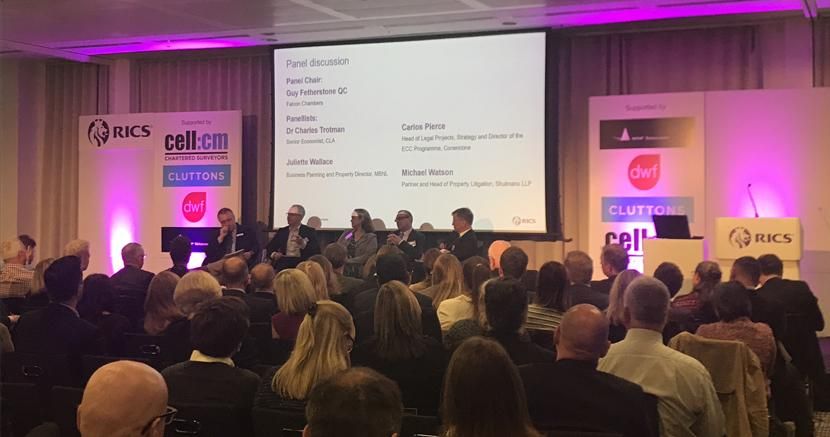Enhancing Mobile Connectivity Through Improved Communication at RICS Telecoms Conference

On 12th November, we attended the RICS Telecoms Conference in London, where our Head of Strategic Legal Projects & The Code Programme, Carlos Pierce, took part in the panel discussion on “2 years on: Understanding how The Code is working in practice.” This was a discussion looking at The Electronic Communications Code (ECC) and whether its objectives are being met for various parties involved. It debated whether the Code is delivering for landowners, operators and infrastructure providers?
The panel participants included:
Carlos Pierce, Head of Strategic Legal Projects & The Code Programme, Cornerstone
Dr Charles Trotman, Senior Economist, CLA
Juliette Wallace, Business Planning and Property Director, MBNL
Michael Watson, Partner and Head of Property Litigation, Shulmans
As the panel discussion kicked off by the chair, Guy Fetherstonhaugh QC from Falcon Chambers, it came to light from the debate that although progress has been made since the introduction of the ECC in 2017, there are still challenges in the industry that we need to continue to work on. Some of these challenges related to a misconception of Cornerstone wanting to take site owners to Tribunal cases without engaging first. However, engaging with Landlords and Site agents has been at the forefront of Cornerstone’s plans, but where there is no interaction from the opposite party to discuss the Code further, the Tribunals have been a source for guidance.
The main concern from the Site Provider Agents seemed to be the impact that the Code has on rental levels. But it was highlighted that although the new updated Code imposes a different approach to valuation, this is all because we need to support the Government’s drive to build a better digital Britain and it’s necessary to encourage greater investment in digital connectivity by the Operators. The Site Provider Agents must recognise that this is what the updated Code will deliver and it’s important to work with the industry to achieve this.
Perhaps this stems from a lack of understanding of the Code? Discussing the recent tribunals, it became evident that they have given the industry some clarity, but there is still a gap whereby the Code is not fully recognised for what it is and how it can be used to help all parties. If there is capacity for more cases to be taken to Tribunal, then perhaps that is the way forward until we all comprehend how the Code works and how it will support us improve mobile connectivity.
Consensual Code deals have been done; therefore, it does work, but the discussion looked at what more can we do to make this a permanent solution going forward? Carlos Pierce says “All parties need to communicate and agree on a way of working. We at Cornerstone are always willing to have this conversation but we need the Landlord community to be on the same page. We do believe that in the next six-nine months, we will see more consensual deals as businesses and communities want to take advantage of having reliable mobile coverage as it plays a big part in our everyday lives. However, it’s in all our interests to make the journey as smooth as possible and without having to rely on tribunal precedents.”
The panel discussion did raise an interesting debate and clearly, all relevant parties need to take a bold step in supporting the Code and play their part in making it work. It must be recognised that if we don’t embrace what it was intended for, this can have an impact on the quality of our mobile services and the demand for 5G in the UK. This cannot be allowed to happen.